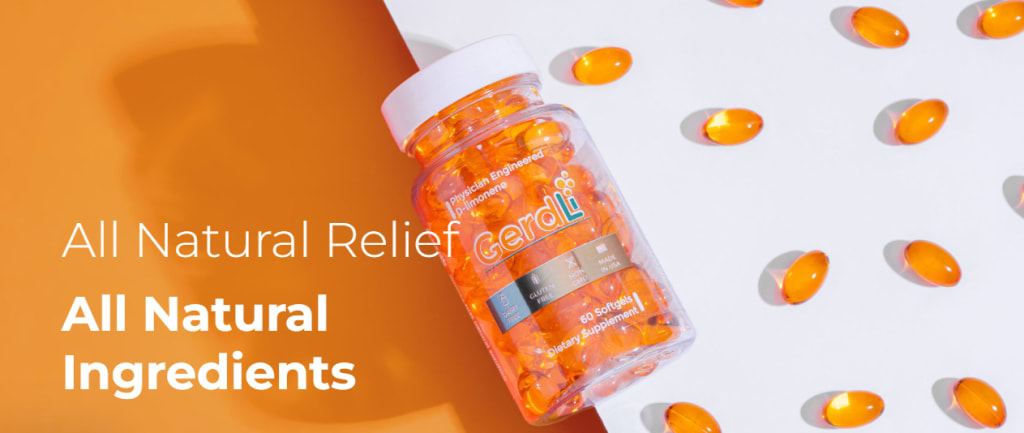
Heartburn is a common condition that occurs when stomach acid rises up the esophagus and causes an uncomfortable burning feeling in the throat or chest. It is often accompanied by a sour taste in the back of the throat. Heartburn can be mild and occasional or it can be chronic and frequent. The longer and more frequent the heartburn, the greater the risk of developing complications such as esophageal ulcers.
How Does Alcohol Consumption Contribute to Heartburn?
Alcohol consumption can lead to heartburn in a number of ways. First, alcohol can relax the lower esophageal sphincter, which is the muscle that separates the stomach from the esophagus. When this muscle relaxes, stomach acid can more easily sneak back up the throat. Additionally, drinking too much alcohol can lead to dehydration, which can trigger the production of stomach acid, leading to heartburn. Lastly, alcohol increases the acidity of the stomach, which can also contribute to heartburn.
What Other Factors Contribute to Heartburn?
There are many other factors that can contribute to the development of heartburn. Aside from alcohol consumption, these include diet, stress, smoking, pregnancy, and certain medications. Foods with high acidity, such as citrus and tomatoes, can trigger heartburn, as can fried and spicy foods. Eating large meals, lying down soon after eating, and eating close to bedtime can also increase the risk of developing heartburn. Stress and anxiety can also aggravate heartburn, as can smoking and taking certain medications, such as aspirin and ibuprofen.
Causes of Alcohol Heartburn
Acid Reflux
One of the causes of alcohol heartburn is acid reflux, also known as GERD or gastroesophageal reflux disease, is a condition in which stomach acid flows back up into the esophagus. It can cause a burning sensation in the chest (heartburn) and can lead to other symptoms such as chest pain, difficulty swallowing, and a sour taste in the mouth. While many people assume that acid reflux is caused by too much stomach acid, it is actually caused by a weakened lower esophageal sphincter (LES). The LES is a ring of muscle at the bottom of the esophagus that normally stays closed to keep stomach acid from flowing back up into the esophagus. When it becomes weakened, it can allow acid reflux to occur.
Acid reflux occurs when the lower esophageal sphincter, a small muscle located at the entrance to the stomach, fails to close tightly after food passes through. This allows stomach acid to flow back up into the esophagus, causing irritation and pain.
There are a number of factors that can contribute to acid reflux. Obesity and pregnancy are two of the most common causes. Other risk factors include smoking, eating large meals, eating certain foods and drinks, consuming alcohol, and eating late at night. Certain medications can also increase the likelihood of acid reflux.
Causes of Acid Reflux
The most common cause of acid reflux is a weakened or dysfunctional lower esophageal sphincter. The muscle may be weakened due to a variety of factors including obesity, smoking, pregnancy, and certain medications.
Certain foods and drinks have also been found to contribute to acid reflux. Foods that are high in fat, spice, or acidity, as well as carbonated drinks, have been found to increase the likelihood of acid reflux. Alcohol, especially alcohol consumed in large amounts, has been linked to acid reflux as well.
Drinking Habits
Drinking alcohol can be a pleasant and enjoyable experience, especially when done in moderation. But for those who are not mindful of their drinking, it can easily become an unhealthy habit. Unhealthy drinking habits can lead to a variety of health issues, such as alcohol dependency, liver damage, heartburn, and more. Fortunately, it is possible to break the unhealthy drinking cycle and create healthy drinking habits. This blog post will discuss the factors to consider when creating healthy drinking habits, the benefits of breaking bad habits, and some tips for breaking unhealthy drinking habits.
Symptoms of Alcohol Heartburn
Chest pain
Chest pain is a term used to describe any pain that can be felt in the chest area. It can be dull or sharp, aching or burning, or even a feeling of tightness or pressure. It can be localized to one area of the chest or spread across the chest, and it may also be accompanied by other symptoms such as shortness of breath, nausea, dizziness, or sweating.
Causes of Chest Pain
The causes of chest pain can vary, but some of the most common are heartburn, muscle strain, and costochondritis. Heartburn is the most common cause and is typically caused by a condition called GERD, or gastroesophageal reflux disease. It occurs when stomach acid backs up into the esophagus and causes a burning sensation in the chest. Muscle strain and costochondritis are both caused by inflammation or irritation of the muscles and cartilage in the chest. Alcohol consumption can also be a cause of chest pain, as it can lead to heartburn and increased pressure on the chest wall.
Nausea and vomiting
Nausea and vomiting can be caused by a variety of medical conditions, including alcohol consumption, food poisoning, medication side effects, and heartburn. They can also be caused by motion sickness, morning sickness, or other illnesses. While these symptoms can variably range from mild to severe, it is important to understand their causes and triggers, as well as to discover treatments for them.
Causes of Nausea and Vomiting
Alcohol consumption is a common cause of nausea and vomiting. This is because alcohol irritates the stomach lining, leading to an upset stomach, bloating, and possibly nausea and vomiting. Additionally, alcohol can lead to dehydration, which can also cause nausea and vomiting. Food poisoning is another common cause of these symptoms because it is caused by eating food contaminated with bacteria, toxins, parasites, or viruses.
Heartburn is another potential cause of nausea and vomiting. Heartburn is caused by acid reflux, which is when stomach acid travels up the esophagus and into the throat. This can lead to a burning sensation in the chest, as well as nausea and vomiting.
Treating Alcohol Heartburn
Before diving into the benefits of OTC and prescription medications, it is important to understand what these drugs are. Over the counter drugs are available for purchase without a doctor’s prescription, while prescription medications require a written, signed order from a physician. Both types of drugs can be used to treat a variety of conditions, from minor aches or discomforts to more serious illnesses.
Benefits of OTC Medications
OTC drugs offer a number of advantages, including cost effectiveness, immediate availability, and increased accessibility. Many OTC medications are much more affordable than their prescription counterparts, making them an attractive option for those on a budget. Additionally, these drugs are widely available, meaning that you don’t have to wait to get a doctor's appointment in order to get relief. Finally, OTC medications can be purchased without a prescription, meaning that even those without access to a doctor can get the relief they need.
Benefits of Prescription Medications
Prescription medications can be a great option for those needing longer-term treatment. Because they are prescribed to an individual, the dosage can be tailored to the needs of the patient. Furthermore, these drugs are subject to rigorous quality control, ensuring that they are safe and effective.
Common Misconceptions about OTC and Prescription Medications
There are many misconceptions about OTC and prescription medications, particularly when it comes to side effects and interactions with other medications. While some medications can cause side effects, most are mild and temporary. Additionally, there are ways to minimize the risk of interactions, such as avoiding taking more than one medication at the same time, taking all medications at the same time each day, and informing your doctor about all the medications you are taking.
Common OTC and Prescription Medications
There are several types of OTC and prescription medications available, including pain relievers, allergy medications, and antihistamines. Pain relievers, such as ibuprofen and acetaminophen, can be used to treat minor aches and pains. Allergy medications, such as loratadine and cetirizine, can help reduce the symptoms of seasonal allergies. Finally, antihistamines, such as diphenhydramine, can help reduce the symptoms of hay fever, insect bites, and hives.
Proven Strategies for Long-Term Relief
If you suffer from alcohol heartburn, there are several strategies you can use to manage it.
The first and most important step is to reduce or eliminate your alcohol intake. Even if you don't suffer from alcohol-related heartburn when you drink, it's still a good idea to reduce your alcohol intake, as long-term drinking can lead to more serious health problems.
You should also avoid eating large meals, as this can put additional strain on the lower esophageal sphincter. Eating smaller, more frequent meals throughout the day can help to reduce the symptoms of heartburn.
Finally, pay attention to the types of food and beverages you're consuming. Certain foods and beverages, such as citrus fruits, tomatoes, chocolate, and coffee, can increase the symptoms of heartburn.
Supplements for Heartburn
Heartburn is a burning sensation in the chest and throat caused by a backflow of stomach acid. It can cause a sour taste in the mouth and often occurs after eating or while lying down. Common triggers of heartburn include spicy food, citrus fruits, fatty or fried foods, coffee, tea, and alcohol. Despite its uncomfortable symptoms, heartburn can be treated through lifestyle changes and medical interventions, such as over-the-counter medications and prescriptions.
The use of dietary supplements for heartburn is an increasingly popular option. These supplements are made from natural ingredients and are known to be effective in relieving symptoms.
Benefits of Supplements for Heartburn
In addition to the traditional treatments mentioned above, supplements can also be a beneficial option for heartburn sufferers. Supplements are made from natural ingredients and offer a safe and non-invasive way to relieve symptoms. Here are some of the advantages of using supplements for heartburn:
Natural Ingredients
Supplements are made from natural ingredients, such as herbs and essential oils. They are free from harsh chemicals, preservatives, and other unnatural additives that can cause side effects. Additionally, they are typically taken on a short-term basis, making them an ideal choice for those looking for relief without long-term commitment.
Non-Invasive Treatment
Supplements provide a non-invasive way to treat heartburn. Unlike prescription medications, there is no need for trips to the doctor or medical procedures. Supplements are taken orally and are easy to purchase from pharmacies or online retailers.
If you are looking for heartburn supplements, contact GERDLi at https://gerdli.com/product/gerdli/ They have a variety of options to choose from that can provide relief for your heartburn symptoms. Their supplements are made from natural ingredients and are designed to help you maintain healthy digestive health. GERDLi understands that finding the right supplement for you can be a bit tricky, so please don't hesitate to contact them if you need help choosing the best product for your needs. They are here to help and they look forward to helping you get relief from your heartburn!





Comments
There are no comments for this story
Be the first to respond and start the conversation.